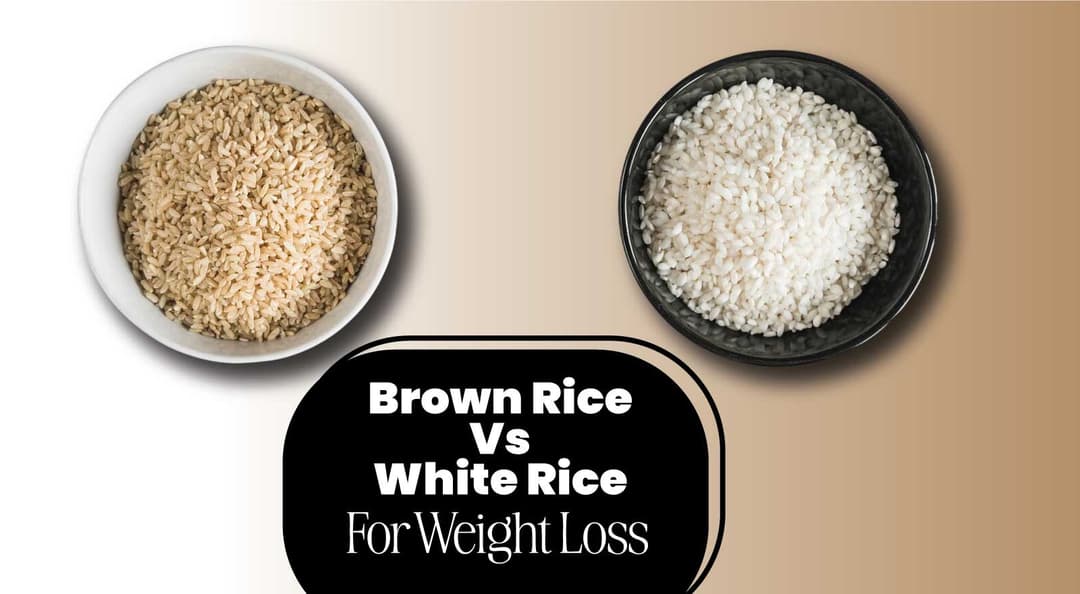The final phase of 2024 has arrived, and with it, all the accounts and wrap-ups of the year. Most popular movies. Most famous songs. Most memorable moments. Which topics made the most headlines? Who did the most? Who did the least? And so on and on.
But did you know that each year, we also have the ‘Word of The Year’? It’s quite surprising and interesting to look at and think about. Every year, dictionaries like the Oxford University Press, Merriam-Webster, Cambridge Dictionary and Dictionary.com select their word of the year, reflecting societal trends.
This year, in 2024, Dictionary.com selected demure (yes, from the viral trend ‘very mindful, very demure), Cambridge Dictionary selected manifest, Merriam-Webster went with polarization, and last but not least, Oxford University Press chose brain rot.
These words are not just trendy but have become an integral part of our everyday language. They reflect society and are a mirror of our time.
Today, let’s talk about Oxford University Press’ Word of the Year for 2024: 'brain rot'. It is a term spelt as two words and has seen a 230% increase in usage over the past year, according to lexical authorities. Let us understand the meaning of this term before the end of the year and learn why it has picked up the interest of Oxford University Press and why everyone seems to be discussing it everywhere.
Table Of Contents
- What is Brain Rot — Word of The Year (2024)
- Brain Rot: Symptoms, Health Implications & How To Deal With It
- Expert’s Advice
- The Final Say
- FAQs
- References
What is Brain Rot — Word of The Year (2024)
Brain rot is defined as a deterioration of a person's mental or intellectual condition, especially as the result of excessive media consumption that is considered trivial or undemanding. Media consumption typically refers to online content, especially short-form content like TikToks or Reels.
This fun-sounding term actually highlights growing concerns about the impact of consuming low-quality, trivial social media content on mental well-being. It reflects concerns about the slow decline of mental/cognitive abilities like focus, critical thinking, memory retention and attention span, often due to excessive consumption of online content, endless scrolling, or overstimulation from digital media.
The first recorded use of ‘brain rot’ dates back to well before the internet; it was written down in 1854 by Henry David Thoreau in his book Walden. In the book, Thoreau criticised society's tendency to devalue complex ideas and how this is part of a general decline of mental and intellectual endeavour.
The word initially gained traction on social media among the Gen Z and Gen Alpha generations but is now used in mainstream media and conversations as a way to describe low-quality, low-value content on social media.
Also Read: 5 Mental Health Exercises To Boost Concentration Levels And Brain Functioning
Oxford University Press made ‘brain rot’ their Word of The Year based on a public vote, in which more than 37,000 people are reported to have participated.
According to the Oxford University Press, the word ‘brain rot’ reflects growing concerns about how technology is shaping people's thought processes, mental function and habits. The usage of the word has skyrocketed in recent years, especially among younger demographics (Gen Z and Gen Alpha), to describe the mental fatigue caused by binge-watching videos, doomscrolling, or heavily engaging in low-quality online content.
In 2024, we use the term ‘brain rot’ to describe both the cause and effect of this, referring to low-quality, low-value content on social media and the internet, as well as the subsequent negative impact of the consumption of this type of content on individuals.
Awarding ‘brain rot’ as the word of the year 2024, Oxford University Press has drawn attention to a term that encapsulates anxieties, desires and an evolving relationship with technology. It serves as a linguistic lens into a key issue of the modern age, encouraging introspection about how digital habits affect mental well-being. It's a reminder of the importance of balanced content consumption and the growing need for mindfulness in a hyper-connected.
ToneOp Care's Fish Oil Capsules are your brain's best ally, delivering essential omega-3 fatty acids for optimal cognitive function. Packed with 1000 mg of oceanic goodness, these capsules support memory, focus, and overall brain health, ensuring you stay sharp and alert.
Brain Rot: Symptoms, Health Implications & How To Deal With It
When there’s a problem, there’s always a solution. In a world that is collectively so chronically online, it’s difficult to understand when we transition from normal to not normal when it comes to being online and having brain rot. So, read these symptoms carefully and be honest about whether or not they sound like you.
A. Symptoms & Effects
Victims of brain rot may report some symptoms, including:
- Poor thinking: Lack of concentration and understanding of information.
- Short attention span: Struggles to concentrate or fully understand what one is reading for a longer period of time.
- Mental Exhaustion: Too much information to consume can be overwhelming and can cause procrastination and forgetfulness.
Brain rot can also manifest itself as doomscrolling, where individuals compulsively scroll through negative or distressing content on social media or news platforms for extended periods.
ToneOp Care's Flax Seed Oil Capsules deliver a powerful boost of omega 3, 6, and 9 to support optimal brain health and cognitive function. With 500 mg per capsule, these supplements are your go-to solution for enhancing memory and overall mental clarity!
Also Read: Exercise and Mental Health: How Physical Activities Alleviate Symptoms of Anxiety And Depression
B. Health Implications
Although it primarily affects cognitive function, brain rot can also bring emotional consequences.
Prolonged exposure to nonsensical web content can cause feelings of numbness, nervousness, and depression. Overstimulation with numerous notifications and shallow interactions cannot sustain meaningful information and connections because the brain is overwhelmed by the influx of information.
C. Dealing With Brain Rot
Some of the measures proposed to mitigate the impact of brain rot are:
- Limit screen time: Reduce the hours spent on social media and other digital platforms.
- Engaging in meaningful activities: With time off your phone, you can engage in hobbies that stimulate your cognitive engagement, such as reading, scrapbooking, painting, storyboarding, etc. You can even go for outdoor fitness workouts, and winters are the perfect time to try something new!
- Mindfulness practices: Techniques that promote awareness and focus can help counter the effects of digital overconsumption.
ToneOp Care's Krill Oil Capsules are your go-to solution for enhancing brain health! Packed with pure Antarctic omega-3, these capsules support cognitive function, memory, and concentration, ensuring your mind stays sharp and focused.
Also Read: 12 Best Exercises For Brain Health To Improve Memory, Cognition And Mental Wellness
Expert’s Advice
Brain rot is the result of mindlessly scrolling through nonsensical memes and low-quality sludge content. It’s that creeping feeling of your mental faculties being smothered—dulled by one too many AI-generated images or repulsive visuals that often flood platforms like Facebook.
Your brain is your most valuable asset. Protect it fiercely because its health determines the quality of your life.
Health Expert
Lavina Chauhan
The Final Say
‘Brain rot' is a reminder of the issues faced by modern society and encourages introspection about how digital habits affect mental well-being. It stands as a reminder of the importance of balanced content consumption and the growing need for mindfulness in a hyper-connected world. By crowning ‘brain rot’ as the word of the year for 2024, Oxford University Press has drawn attention to a term that sums up the anxieties and aspirations of the age. And evolving relationship with technology.
FAQs
1. What is another word for brain rot?
Another word for brain rot is mental decline, which means brain damage or mental disorder.
2. Is brain rot permanent?
No, brain rot is not permanent, and with consistent, healthy lifestyle changes, it can be reversed easily. To do so, simply reduce screen time and add more physical activities to your daily routine.
References
- https://www.tv9hindi.com/knowledge/5-words-brain-rot-demure-brat-that-remain-trending-in-year-2024-know-what-they-mean-3002018.html
- https://www.thehindu.com/news/international/brain-rot-named-oxford-word-of-the-year-2024-what-does-it-mean/article68942142.ece
- https://www.bbc.com/news/articles/cx2n2r695nzo
- https://news.northeastern.edu/2024/12/03/brain-rot-oxford-word-of-the-year/
- https://edition.cnn.com/2024/12/02/world/brain-rot-oxford-word-of-the-year-2024-intl-scli-gbr/index.html
- https://www.scientificamerican.com/article/why-brain-rot-is-2024s-word-of-the-year/
- https://www.indiatoday.in/health/story/brain-rot-is-oxford-word-of-the-year-leads-to-reduced-attention-span-2645998-2024-12-07
- https://www.jagranjosh.com/general-knowledge/what-is-brain-rot-oxfords-word-of-the-year-for-2024-1733475432-1
About ToneOp Fit
ToneOp Fit is a platform dedicated to improving and maintaining good health through a comprehensive range of goal-oriented health plans with up to 3 Coach support. With a range of Weight Management, Medical Condition, Detox Plans, and Face Yoga Plans, the app also provides premium health trackers, recipes and health content. Get customised diet, fitness, naturopathy & yoga plans and transform yourself with ToneOp.










































